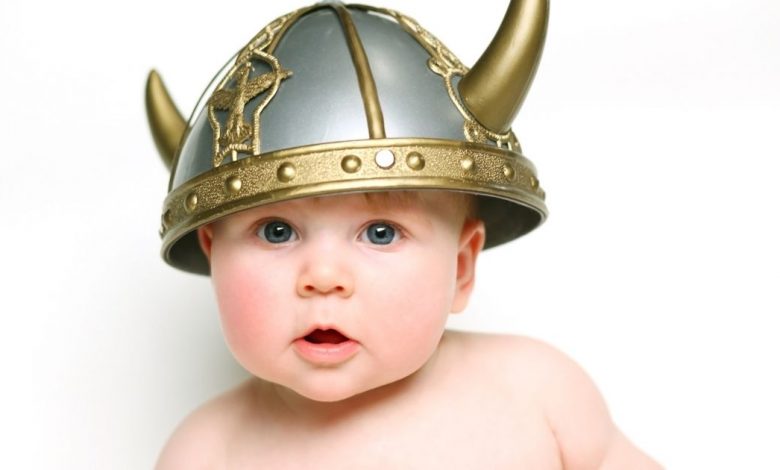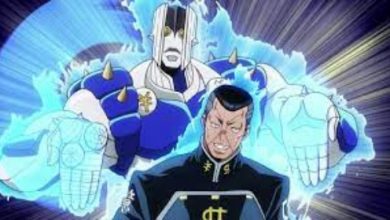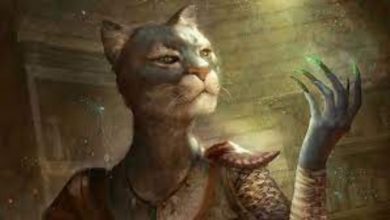Most Popular Norse Names Male List

A piece of a skull with runes carved onto it. The names Odin, Ulfur, and Hydyr may be seen on the wall.
During the Viking Age, numerous boys were given names that were derived from the deity Thor, such as Toke and Thorsten. The use of animal names was also common. It was not uncommon to come across Vikings with names such as Orm (Serpent), Ulf (Wolf), and Bjrn (Bear) (Bear). These names commemorate the gods’ terrible adversaries, such as the Midgard serpent and the wolf Fenrir, which the Norse gods had to vanquish during Ragnarök, the festival of the harvest.
It is also possible that the names have unique abilities associated with them. For example, Frida means “peace” and Astrid means “beautiful and adored,” which suggests that Astrid was a highly sought-after lady. This was in contrast to Hilda, which literally translates as “the warrior. ” The names provided the Vikings with strength and protection throughout their lives.
A large number of names from the Viking Age are still in common use today. In Denmark, individuals with the names Rune, Erik, Sigrid, and Tove are still alive and well. In the box are several of the names that the Vikings were known by along with their meanings.
Read More: Top Famous Wizard Names And Unique Wizard Name Ideas
Table of Contents
We Don’t Know Where We Got The Names.
The names Harald, Gorm, and Thyra are inscribed on the Jelling Stone. “King Harald had these kumbls built in remembrance of Gorm, his father, and in memory of Thyra, his mother; that Harald who conquered all of Denmark and Norway and converted the Danes to Christianity.”
We are acquainted with Viking names because of their appearance in runic inscriptions and place names, for example. The names of the Vikings have also been mentioned in a few foreign sources. Many of these names are unique to Scandinavian cultures. As a result, we can differentiate them from names that are often used in other areas. Due to the fact that expeditions were mostly undertaken by males, we discover more men’s names than women’s names. Examples of this may be found, for example, in the Viking communities in England.
The origins of the naming tradition may be traced back to the previous era. In particular, during the Viking Age, the names of the Norse gods and mythical creatures acquired popularity among the people. During the late Viking Age and early Middle Ages, some names were established in certain families, such as Harald, Svend, and Knud in the Danish royal line during the late Viking Age and early Middle Ages.
Some Vikings were also known by their given names. Some of these may be used to signify familial relationships (for example, the son or daughter of someone) or the location where a person originally originated from (e.g. Bjarke the Norwegian, who lived in Denmark). The term may also be used to denote a unique characteristic or property (e.g. Asgot with the Red Shield).
People were probably more creative with bynames following the Viking era when Vikings from the “old days” were depicted and written about, but it is also possible that this was the case. The names of important individuals such as Harald Bluetooth and Harald Fairhair are referenced in these sources solely by their forenames, although it is unclear if these names were used while they were still living.
When Christianity was introduced into Scandinavia during the late Viking era, biblical names started to become more popular. The names of the Vikings, on the other hand, were not forgotten. Names that have their origins in the Viking era are still given to children today.
Read More: Favorite Disney Movies
For Boys, There Are Many Norse Names
Arne (also spelled Arne) (Scandinavian). This traditional Norse given name means ‘eagle’ in English.
Arnkell is a fictional character created by author Arnkell (Nordic). Meanings include ‘derived from the parts of an eagle.’
Aria is a fictional character created by author Ari Aster (Old Norse). Another beautiful, powerful name that also has the meaning of ‘eagle’ in it as well.
Arnfinn (Arnfinn) is a fictional character created by the author Arnfinn (Norwegian). It may be translated as both ‘eagle’ and ‘a person from Finland.’
Asperger’s Syndrome (old Norse). This name is derived from the Old Norse name sgeir, which literally translates as’spear of god.’
Arvid is a viking who lives in Norway (Swedish, Norwegian). This unique name, which meaning both ‘eagle’ and ‘tree,’ is one of our favourites.
Birger is a slang term for a person who has a lot of money (old Norse). Another name originating in Scandinavia, this one originates from the Old Norse word ‘bjarga,’ which translates as ‘one who lends a hand’.
Bjarke Ingels (Danish) The word “bear” comes from the Norse language, and it is one of the most beautiful you’ll ever come across.
Bjorn is a slang term for “Bjorn the Builder” (Swedish, Icelandic, Dutch). Bear is another Viking-derived given name that is perhaps the most well-known of all of the many possibilities. Swedish surnames like these have historically been very common among people of Swedish descent.
Bo (Swedish/Danish/Old Norse) is a name for a person. A short and charming name, Bo comes from the word “bua,” which literally translates as “to live.” This is a great gift for newborn boys.
Brandt is a fictional character created by the author of the novel Brandt (Old Norse). This intimidating given name translates as’sword.’
Calder is a slang term for someone who is tall and has a slender build (Both Old Norse and Gaelic in origin). “Cold, choppy seas” is how the phrase is translated.
Canute is a fictional character created by the author of the novel Canute’s Quest (Old Norse) King Canute was a renowned Viking warrior who reigned over the peoples of England and Denmark for many years. The name may alternatively be translated as ‘knot, rope, or thread.’
Carr is a slang term for “carrier” (Old Norse) As the name suggests, it derives from the ancient Norse term for “swamp,” which may also indicate “one who originates from the marshlands.”
Colborn is a fictional character created by author Charles Colborn (Norse). Burning coals or burning charcoal is the direct translation of this term.
Colby is a young man who grew up in a little town in the United States (Scandinavian). This phrase translates as ‘dark town.’
Crosby, B. (Norse). Translation: “cross farm,” or someone who lives in close proximity to a farm.
Dag (Norway/Sweden) is a young man from Norway. This baby boy’s name is derived from the word ‘dagr,’ which literally translates as ‘day.’
Darby is a fictional character created by the author of the novel The Darby Chronicles (Old Norse). “Deer park” or “village where the does wander” are the literal translations of this name.
Dustin This is an anglicised version of the Norse name Thurston, which means ‘Thor’s stone’ (Thor was the mighty God of Thunder) and is a charming male baby name. If you’ve seen the Netflix series Stranger Things, you’ll be acquainted with the character Dustin.
Einar is a viking who lives in Norway (Old Norse). The term “lone warrior” refers to someone who battles on his own.
Idris Eluf is a fictional character created by author Idris Eluf to play a role in the film Eluf, which is set in the fictional world of Eluf (Scandinavian). This term refers to the ‘only heir’ or’sole heir.’
Erik is a young man who grew up in a little town in the United States (Old Norse). Erik the Red was the King of the Vikings. This literally translates as ‘one who reigns as king for all time.’ Eric is given a modest makeover for your newborn boy.
Erland is a fictional character created by the author of the novel Erland (Old Norse). It is an abbreviation for ‘outsider.’
Follow TechWaver for more!



